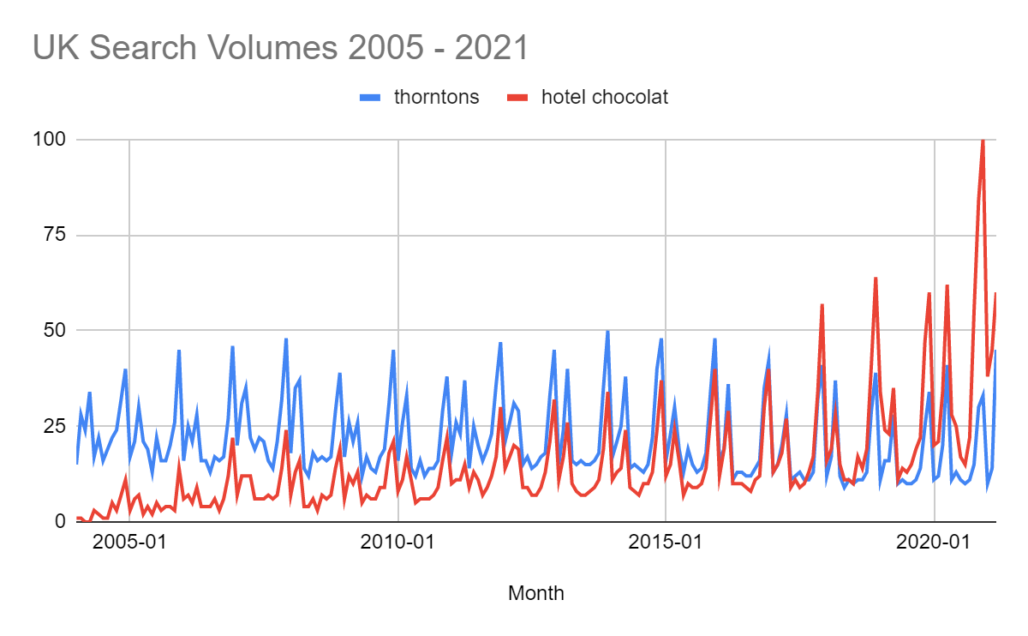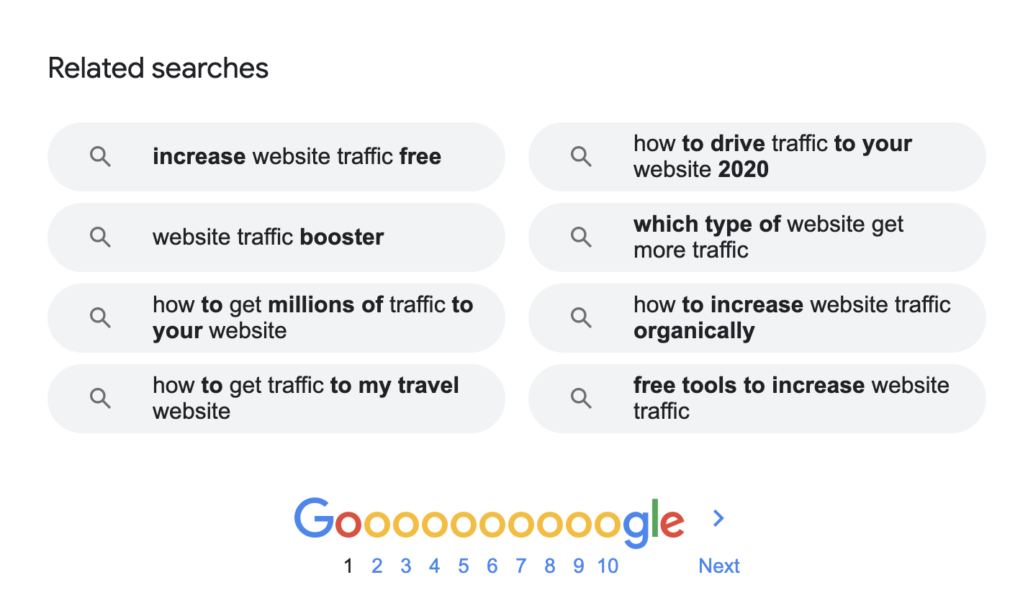This is a guest piece from Jon Payne
Jon is the founder and Technical Director of Noisy Little Monkey the Bristol based digital marketing agency and HubSpot Diamond Partner.

These aren’t all the SEO success secrets, obviously. It’s a huge topic which is changing all the time – I’ve been working in SEO since around 1999 and relatively speaking, I know less about SEO now than I did at the turn of the century. However, this article will cover off the foundational elements you need to consider when setting up a business or migrating to a new website, because if you’re part of a growing business, SEO can be one of the most cost-effective ways of generating leads.
Whilst our expertise at Noisy Little Monkey falls mostly in B2B, it’s also extremely effective for eCommerce in generating baskets and checkouts. The problem is that SEO can be hard and you always have to make a big investment upfront in terms of time, probably some money too, definitely some research and maybe an SEO agency, if you can find the right one.
Could SEO be your competitive advantage?
Remember – everything that’s hard is normally not going to be done by your competition. Your competition will normally do the easy things, like paying for ads, or just relying on the fact that they’ve always been well known.
A really good example of the importance of brand presence (of which SEO is a key component), is Hotel Chocolat versus Thornton’s. Hotel Chocolat has worked hard at growing its brand awareness and delighting customers and is killing it. Whereas Thorntons, has stuck to what it knows, stayed fairly traditional in its approach and is closing all of its stores and going online. Given that Hotel Chocolat has spent a huge amount of time and resource into growing its presence offline, you can see how that’s going to work out for Thorntons.
This graph shows the number of people searching for Hotel Chocolat Vs Thorntons.

Of course, this disparity in isn’t all because of their SEO success, this graph just demonstrates branded search. But it does show that Hotel Chocolat have been doing the right mix of advertising, marketing, PR and SEO. Compared to Thornton’s who have rested on the laurels of their former success.
This is what I mean about competition. Your competition is normally going, “we’ll be okay”. If you want to grow, however, SEO is a key component which contributes to things like brand awareness which many businesses don’t put the time and effort into. So SEO is an opportunity for you to differentiate.
The strategies:
There are a four main strategies we’ll discuss here:
Foundational strategies:
- Website speed,
- Information architecture,
Longer term strategies:
- Keywords,
- Link building
Build SEO into your website from the beginning
There is a lot to consider on the technical side of SEO success. So let’s break it down.
Website speed
When people think of SEO, they mostly think it’s just keywords and keyword strategy. However, website speed, particularly time to first byte (the tiny first handshake between your website and the browser), correlates very highly with a well ranking website for non-branded generic searches.
This is related to speed in terms of how quickly the site reacts to being visited and how quickly you can see everything meaningful on the page, or “first meaningful paint”. It’s also related to “time to interactive” (how long does it take for users to click something useful). And finally (which is more UX focused than speed) the impact of loading on UX. For example when you go onto a website and go to click something and then an ad loads and pushes everything down the page (ehem, Bristol Post)
Google is taking this one step further with its core web vitals update (which it’s releasing in May). Google isn’t saying it’s going to penalise offenders per-se, but if your site has us slow and/or has a poor user experience you’ll likely notice that in 2021, Google will prefer your competitors’ websites should they offer a better user experience.
Speed and User Experience, particularly around the core web vitals, offer an excellent shorthand of things that are likely to be ranking factors (because of course we don’t know 100% what are ranking factors). So these are both really important to get your head around. Google’s John Mueller did a really great video about this which I’d highly recommend watching.
Information Architecture
Put very very simply, Information Architecture (IA) is the structure of information labeled and organised on your website.

Many businesses will have a number of service pages and a blog on their website. This is standard practice on B2B websites for a good reason. These pages offer the opportunity to write on topics related to your business and get ranked for keywords and phrases related to your expertise or products. These pages provide a structural basis for IA development as you build out content over time.
When building the site and writing content for these pages, you’ll have all kinds of opportunities to input your “keywords” and “keyword phrases”. (We’ll talk more about keyword discovery later)
When it comes to information architecture, you should be including these keywords/phrases in the following places:
- The page slug (use hyphens between words not spaces or underscores),
- Meta description/page title,
- H1 heading.
Include the main keyword phrase throughout these top 3 (in my opinion these are the most important 3), but don’t forget to include them in these as well:
- Alt text for images (but don’t over-do this. Remember the reason for alt text is to help the visually impaired, so don’t keyword-stuff and make sure the description describes the image still)
- Throughout the body text and other headings (use the phrase liberally but not too much)
Your keywords should be descriptive and problem-solving
A key component to SEO success is making sure your product and services pages are named with or described explicitly as the sort of things that people look for. Most of you probably already know about keywords, but in short these are the search terms your users are using when they’re “in the market” for your product or when they’re having a problem your product solves. So they’re the terms you want to be ranking for.
Let’s take for example if you were selling green water bottles with a closable lid. You’d want to describe it as “Green water bottle with closable lid”. Don’t make the mistake most people would make, of calling it “Green [brand name] bottle”. Unless your brand is extremely popular and dominant already in the water bottle market, your item won’t rank. People make the mistake of thinking that they have to call their product something really cool when actually from an SEO perspective you need to be descriptive. More on seeking out the right keywords to go in your product/service names in a bit.
All of these initiatives combined will make up the information architecture of your website, signalling to search engines what your content is about and who it will be relevant to. Of course there is a lot more complex techy stuff involved in the back end, but these are the practical bits us marketers need to know.
What about longer term SEO success strategies?
We’ve covered the SEO bits you need to know when building your website. Anything you do from here on out is probably going to take 6 months or longer to rank, unless you get a link from the BBC, Channel 4 or another huge and trusted source. Most of us don’t get that because we’re not doing anything newsworthy or interesting enough. So if you can’t think of anything newsworthy and don’t have a PR team, then the best thing to do is start writing relevant content. Which leads us on to your keyword strategy.
Keywords
First and foremost you need to consider; who are your two or three key customers? You’ll likely have buyer personas for them. What problems do they have that your products or services solve?
Let’s say you’re a dentist for example.
What problem do your users have? How can you solve that problem for them? How do they describe that problem?
Let’s say, their problem is that they’re going into meetings with terribly bad breath. So a common search term from your users is “How to get fresh breath before a meeting” (you’d know this because you’d have done search volume research)
The answers to this question are obviously, mints, chewing gum, mouthwash, better dental hygiene, a dental checkup etc.
If you were an SEO-canny dentist, you’d write a blog post on cures for bad breath listing the above options. For convenience-sake the readers’ go-to choice before a meeting is likely to be mints or chewing gum, but they also might book in for a dental appointment to get a check up, now that you’ve raised it as a root cause for bad breath.
In the context of Noisy Little Monkey, Marketing Managers who end up approaching us don’t always start out thinking “how do I get better at SEO”. Instead they search, “how can I get more website traffic”.
Think about the ways your prospects describe their problem and also think about the name they give it before they’re able to identify what their problem even is.
How do you find this golden keyword info?
Get the answers straight from the horses’ mouth: Google
Once you’ve considered how your users might describe their problems, type that problem or their description of it into Google.

Then scroll to the bottom and you’ll see a list of related topics.
This is an absolute treasure trove of blog titles, because all of those related searches are generated by humans searching for similar stuff. It’s not Google making it up, Google knows us better than we know ourselves. This is absolutely brilliant for us as marketers and can be a huge key to SEO success.
Then to do this at scale we use something called answerthepublic.com. Use the same search you’ve used on Google, plug it into their system. This will offer the results with all the conjunctions/prepositions such as “with” “without” “and” “or”, offering you thousands of key searches people are using all day every day, scraped off the suggestion box mentioned before. This tool is particularly useful for long term blogging strategy.
For more mid-funnel keywords you can use SEMRush or Google Keyword Planner. This is when users already know what product or service they are looking for, which obviously changes the terminology they’re likely to use. With these tools, the data is pulled from ads data so you can see what keywords people are bidding on, so what phrases are valuable. Although you’re less likely to win with more competitive phrases.
How to acquire good backlinks
Backlinks have become incredibly influential when it comes to a site’s ranking potential. The more reputable the site linking to you, the more it will positively impact your SEO success.
But how do you get trusted industry websites to link to your content? This is in part done by building relationships but if you don’t have good relationships, then creating incredible, news-worthy content is going to be your next best bet.
Viral Digital PR and creative SEO are methods which are blowing up in the industry right now. It’s essentially combining PR and SEO to build links which will boost your website’s ranking. The team at Rise at Seven, who are led by Carrie Rose are absolutely nailing this. Carrie actually came on one of our webinars at the beginning of lockdown. This lot aren’t afraid to try anything to get those backlinks. One of their PR stunts to get a client to rank was putting a dildo in an easter egg. It got everyone talking about it online (of course!) and the Daily Mail picked it up. As much as it may be a rag of a publication, a link from the Daily Mail can go a huge way to improving your website’s rank.
It doesn’t have to be the Daily Mail of course, it can be whatever publication is deemed an authority in your industry. So consider, what’s the Daily Mail or BBC equivalent of your industry?
In the main there are two options for getting your content backlinked; you can do it the same as the Rise at Seven team, with the high impact PR stunts or you can do things more like we do at Noisy Little Monkey. We take more of a slow burner approach, occasionally breaking the barrier to PR but we tend to focus on producing high-quality content.
Either way, link building is the aim of both these tactics and should be a huge focus for anyone looking to improve their SEO success.

The single most important thing to focus on as a business getting started with SEO…
1. Making your website fast, really fast.
A lightning fast website has a wealth of positive knock-on effects for SEO success and your conversion rates. You’ll waste a lot of time and money if you don’t have this down.
Before you get going with the build and planning with a development team, watch a few videos about core web vitals and get familiar with Google Search Console.
Many web designers (other than Unfold, obviously) fail to consider the impact of speed on your traffic and as a result will build you a beautiful looking website that isn’t fast enough. If you’re familiar with Google, the search console and using core web vitals and know what you’re looking for, this will encourage developers to up their game.
2. Killer content
After that I’d encourage you to focus on creating content your users will love. This will keep people coming back to you and encourage backlinking and sharing of your content to grow your SEO ranking longer-term (without having to resort to putting dildos in easter eggs).
About Jon and Noisy Little Monkey
I am the co-founder of Noisy Little Monkey, along with my wife. I am a disastrous human being, who happens to be good at sales. My wife on the other hand is a very organised person, so together we run a pretty tight business. We set Noisy Little Monkey up 12 or 13 years ago now, having been involved in web design for a long time.
I set Noisy Little Monkey up because I’d worked at an agency that (like many web design agencies I know), over-promised what the website would do. They under-delivered, they delivered late. And then when people wanted to know why their website wasn’t appearing on Google, their answer was “you didn’t tell us you wanted your website to rank on Google” which (in my opinion) is kind of implied!
I ended up getting in trouble with the agency I worked for because I retrofitted a load of SEO stuff on my clients’ websites, which wasn’t technically my job.
In a way, you could say that Noisy Little Monkey was set up in anger, because I wanted to put a stop to digital charlatans in the web design and SEO business, pretending they knew what they were talking about or taking people for a ride.
And here we are 12 years later with a business that has grown fantastically!
At Noisy Little Monkey we are known for our SEO success, but because my background is sales we have always been famous for not only thinking about how to get website traffic, but also how we convert that traffic into sales leads or eCommerce checkouts. Then the opportunity arose to become a Hubspot Diamond Partner, which also offered the opportunity to do end-to-end revenue reporting which has been absolutely amazing.